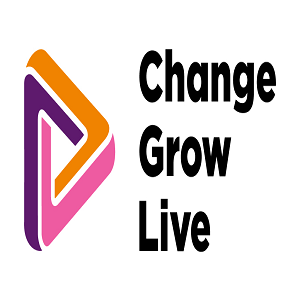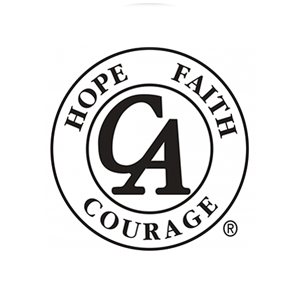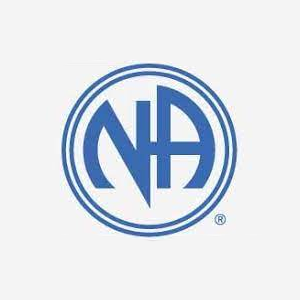Drug & Alcohol Rehab in Northamptonshire

How Does Rehab Work?
Rehab includes holistic strategies that are created to deal with individual addiction with support, wellness methods, and steps to restoring balance. Clients are introduced to life-changing, supportive, and therapeutic programmes that are led by addiction therapists. Along with individual therapy, individuals can benefit from the support received from group sessions. Addictions are treated through a residential or an outpatient programme. For those who enter an inpatient rehab programme, the programme requires that you remain inside the centre or the facility with limited access to the outside world. Outpatient services are an option for those with less severe dependencies and will meet with a counsellor weekly while attending work and remaining at home.
What Happens During Residential Rehab?
Entering rehab is the first step towards sobriety. Even though the journey can be challenging, it is actually possible to avoid relapse. You could possibly feel apprehensive about the process, so let us help you by taking a close look at what you should expect during rehab.
Prior to entering treatment, every individual will be assessed by a medical professional. The aim is to create a treatment plan suited to individual health and wellness needs. This is particularly important for those with a history of addiction and comorbid mental conditions including depression, anxiety or bipolar disorder.
Assessments are followed by alcohol or drug detoxification. Individuals who enter detox will begin withdrawing from substances including alcohol, as the body returns to a normal state of function. This timeline will differ depending on the type of drug used and the length of dependency. Only when the body no longer contains traces of the drug will individuals participate in a treatment plan.
Therapy is an important part of the rehab process and every aspect of addiction treatment must be tailored to address individual backgrounds, substance dependencies, and circumstances. Interventions can range from private counselling and cognitive behavioural therapy to building coping mechanisms, life skills, and attending group meetings.
1. Assessment

For any person entering rehabilitation, an assessment will be performed. It is a normal procedure designed to put your mind at ease as the specialist looks for specific behaviours, previous mental health conditions, and general health. In a residential programme, it is expected to have an admissions screening performed by telephone before booking you into treatment. Phone assessments allow the treatment centre to determine the relevant programme for you. It will also provide staff with information to individualise support services during detoxification.
Whether you or someone you care about require professional support to overcome substance addiction, it all starts with an individual assessment. Assessments are important to the success of therapy because it determines the type of therapeutic plan based on the addiction and potential comorbidities (depression or anxiety).
2. Detox

Detox is a period in which drugs and alcohol are no longer ingested and cleared from the body. It is a process that is best monitored by medical staff in a residential facility.
Detox is necessary where substance misuse and dependency are present. It should be managed by experienced and knowledgeable medical staff to prevent uncomfortable and severe withdrawal symptoms. For those who go through withdrawal, there is a higher risk of relapsing if not managed within a treatment clinic. In a residential setting, qualified staff may offer medical treatment to minimise uncomfortable withdrawal. The approach for therapy, once detox is finished, is determined by the medical assessment.
3. Therapy

Therapy begins when the body is cleared of substances including alcohol. The option of being assigned to an inpatient or an outpatient service will depend on the individual assessment, budget, and life commitments. Therapy provided in treatment ranges from individual counselling with a therapist, the attendance of group therapy, and emphasis on developing positive coping mechanisms as well as skills.
Step by Step Process for Residential Rehab
To understand your medical and mental health history.
Arrange a suitable date to begin your journey to recovery.
Begin the managed withdrawal process from substances including alcohol.
To understand the root cause of addiction and how to overcome it.
Aftercare is provided to help manage the risk of relapse.
To help heal the wounds that addictive behaviour has caused others.
Find your Nearest Rehab Centre in Northamptonshire
The nearest rehab centre is Charterhouse Clinic.
Address: Charterhouse Clinic, The Avenue, Flore, Northampton NN7 4LZ, United Kingdom
Call 0333 4444 432 to discuss your alcohol or drug rehab requirements and any other questions you may have about the process of residential rehab.
Outpatient Addiction Services in Northamptonshire
Outpatient addiction services are available for those who do not wish to commit to a residential clinic or require a more affordable option for treatment. To help you with the best treatment, we provide a breakdown of outpatient services compared to residential ones.
When you enter into an outpatient programme, you will be required to meet with a therapist, support counsellor, or group worker once or twice a week. Rather than stay at the residence, you can continue to attend work and care for your family while you receive therapy for dependence.
Private Outpatient services include therapy with counselling sessions delivered by a therapist/counsellor. Sessions can last up to 90 minutes. Free addiction treatment does exist through one of the many reputable charities in the UK (Turning Point), but it does not provide the same individualised care that private services provide.
NHS Free Addiction Services in Northamptonshire

41 Oxford Street Wellingborough Northamptonshire NN8 4JG
WebsiteThe Benefits of Outpatient Services
Private Outpatient programmes focus on individual support that is tailored to suit the needs of those struggling with addiction. – Outpatient treatment is a more flexible arrangement that will aid many individuals regardless of financial or work commitments. It includes the attendance of weekly sessions that are delivered by a qualified therapist or counsellor. – It is a more cost-effective treatment programme in comparison to inpatient addiction treatment.
The Challenges of Outpatient Services
Because one remains at home and vulnerable to the same triggers, there may be a higher risk of relapse and unsuccessful attempts to complete an outpatient programme. Although the NHS and other UK-based charities provide free addiction services, treatment is not tailored to the individual’s needs and waiting lists are to be expected.

How Much Does Rehab Services Cost in Northamptonshire?
Drug or alcohol addiction treatment within a residential setting typically costs around £1500- £4000 per week. In the event private addiction treatment is not an option, our goal is to help you find the right recovery programme that suits your budget requirements.
Fortunately, free programmes are provided by organisations including the NHS and charities such as Turning Point (that requires self-referrals). Other organisations that provide free and community-based programmes for drug or alcohol addiction include Alcoholics Anonymous (AA), Cocaine Anonymous, and Narcotics Anonymous.
Support Groups in Northamptonshire

Spirit Of Recovery - Big Book Study
46-50 Palk Rd Wellingborough NN8 1HR UK

Winners Group
The Full Gospel Church 60 High Street South Rushden Northamptonshire NN10 0QX

Northampton Sober Today - As Bill Sees It:
20 Francis St, just off Grafton St NN1 2NZ
The Pros and Cons of Seeking Treatment in Your Local Area
Pros
1. You are familiar with the area which may provide a layer of comfort/safety.
2. Loved ones can easily travel to visit or are close by.
3. You may save on the costs of travelling long distances for addiction treatment, or free services may only be offered in your hometown.
Cons
1. A local environment means access to drug dealers or other triggers. This is more of an issue if you choose outpatient programmes.
2. Failing to consider locations outside your local area could mean a missed opportunities for more valuable and rewarding programmes.
3. Addiction treatment services that are nearby don’t always offer the best standard of rehab.
If you are unsure of how to look for a rehab service you can trust, consider the CQC. The CQC website offers listings of rehabilitation services and organisations that are ranked according to the standard of its services.
